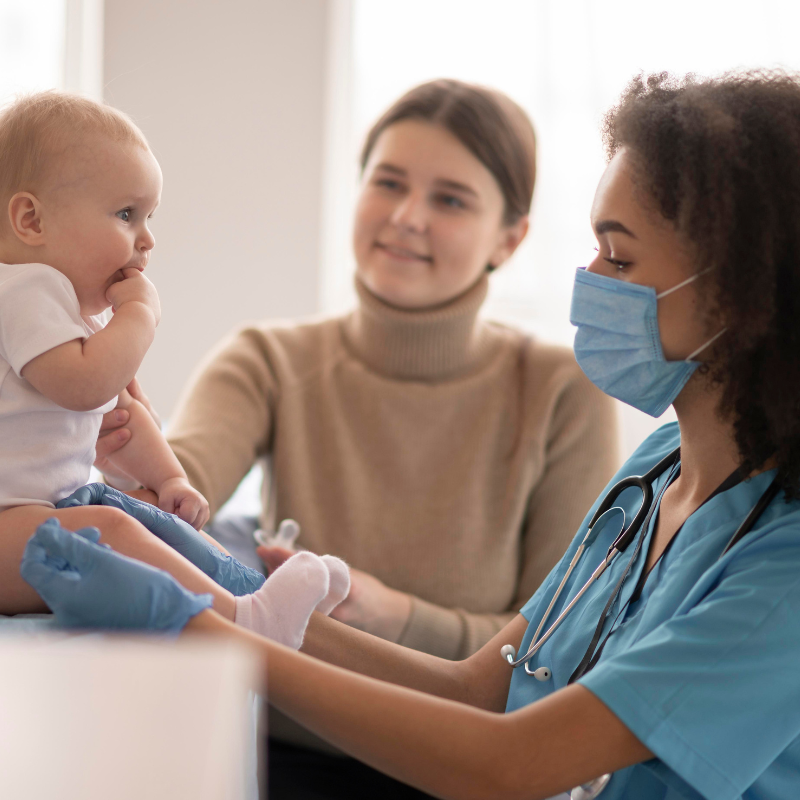Babies are often recommended to avoid travel before getting their vaccinations. Is this true? And if so, why? In this blog post, we’ll explore the evidence behind this recommendation and see if it’s actually necessary. We’ll also talk about when babies can safely travel and which vaccinations they should get.
The Baby’s Age and Travel Immunizations
The Centers for Disease Control and Prevention (CDC) recommends that all babies get their routine immunizations according to the schedule established by the Advisory Committee on Immunization Practices. However, certain vaccines can be given early if travel is imminent. The CDC offers these recommendations:
• If your baby will be traveling outside of the United States, they should receive their first dose of polio vaccine no later than 4 weeks before departure.
• If you’re planning to travel to an area with a risk of yellow fever, your baby should have their first dose of yellow fever vaccine no less than 10 days and no more than 4 weeks before travel.
• There is currently no licensed vaccine for cholera, so the CDC does not recommend immunizations for babies or adults traveling to an area where cholera is present.
The CDC also recommends that all infants receive the hepatitis B vaccine series as soon as possible after birth, regardless of travel plans.
The Importance of Up-to-Date Vaccinations
Babies are at increased risk of contracting serious diseases when they travel. This is because their immune systems are not yet fully developed, and they haven’t had a chance to build up immunity to the diseases that are common in other parts of the world. By getting vaccinated, babies can help protect themselves from these potentially deadly diseases.
Do Babies Have to be Vaccinated to Travel Domestically?
No, there is no requirement for babies to be vaccinated to travel domestically within the United States. However, the CDC does recommend that all infants receive their routine vaccinations according to the schedule established by the Advisory Committee on Immunization Practices.
Do Babies Have to be Vaccinated to Travel Internationally?
Yes, babies are required to be vaccinated against certain diseases to travel internationally. The specific vaccinations required vary by destination but may include vaccines for polio, yellow fever, and cholera.
What Vaccines Are Needed?
There are several vaccines that your baby may need to travel safely, depending on their destination. The CDC recommends that all babies receive the following routine immunizations:
• Diphtheria, tetanus, and pertussis (DTaP)
• Haemophilus influenza type b (Hib)
• Inactivated poliovirus (IPV)
• Measles, mumps, and rubella (MMR)
• Pneumococcal conjugate vaccine (PCV13)
Other vaccines may be recommended.
How Soon After Getting Vaccination Can a Baby Travel?
Most vaccines need to be given at least two weeks before travel to be effective. There are some exceptions, however. For example, the yellow fever vaccine needs to be given at least ten days before travel. You should check with your baby’s healthcare provider for specific guidance on when your baby can travel after getting vaccinated.
Traveling with Unvaccinated Babies
If you must travel with a baby who has not yet been vaccinated, there are some things you can do to help protect them from disease. These include:
• Washing your hands often and teaching your baby to do the same
• Avoiding close contact with people who are sick
• Not sharing food or drinks with others
• Making sure that all of their vaccinations are up-to-date before returning home
Talk to your baby’s healthcare provider before you travel to ensure that you take all the necessary precautions. If babies are not vaccinated before traveling, they are at risk of contracting serious and potentially deadly diseases. These diseases include polio, yellow fever, and cholera.
Since vaccination has become mandatory in most countries around the globe, we recommend that you get yours done within 3 months of your baby’s birth (and 6-month intervals after that) to protect your child against some dangerous and deadly diseases like mumps and whooping cough.
Conclusion
When you have an infant, long-distance traveling can be quite stressful. Hence, taking all the vaccines for your baby before you board a flight is important. After all, it is your right as a parent to make sure that your child is safe and sound!
About the author

James Grasty is a father of two (Maximilian 2, and Lillian 4) and an avid user and purchaser of new and used baby gear. After trying out a lot of gear for his kids, he grew tired of either not finding the product he wanted, them being low quality and cheap, or super expensive. Being an entrepreneur he decided to start his own brand of baby and kids gear aimed at helping parents like himself solve their problems and make parenting a bit easier in the process because we all know how hard it already is.




Leave a comment
This site is protected by hCaptcha and the hCaptcha Privacy Policy and Terms of Service apply.